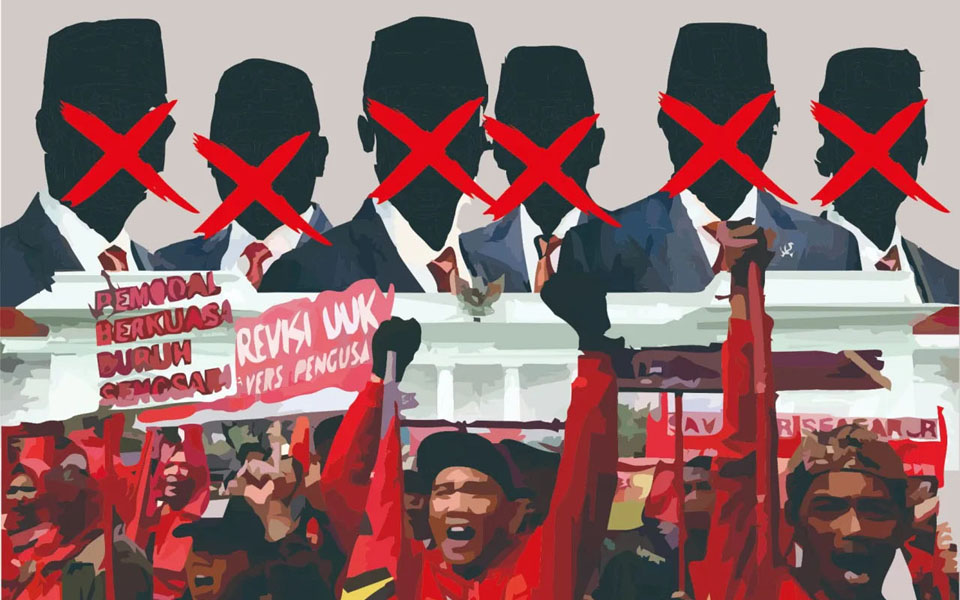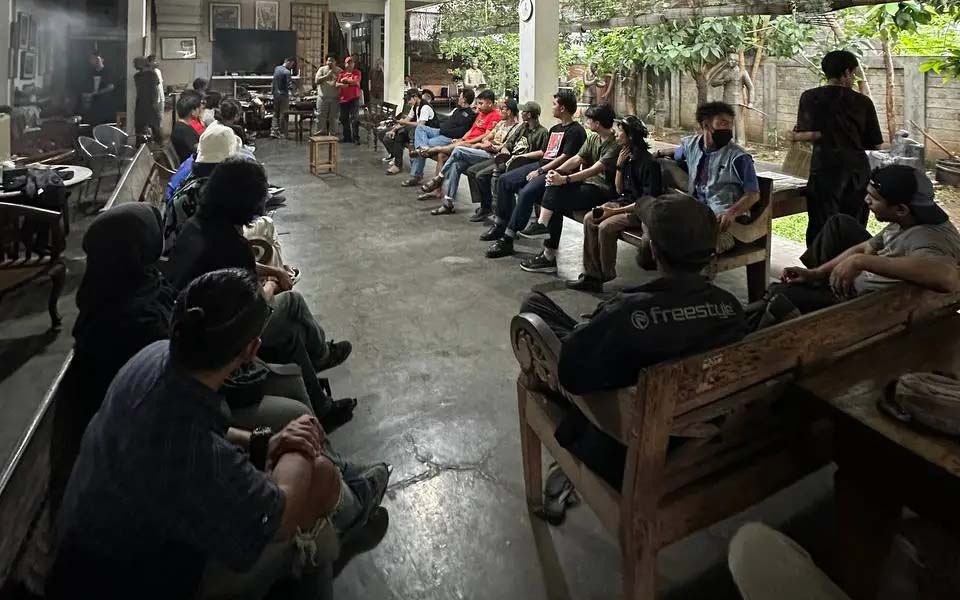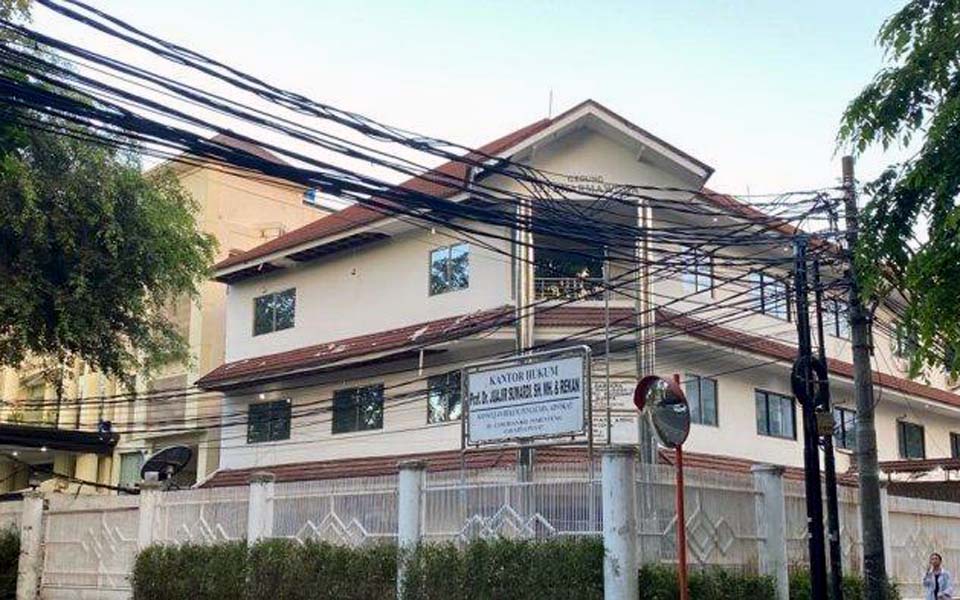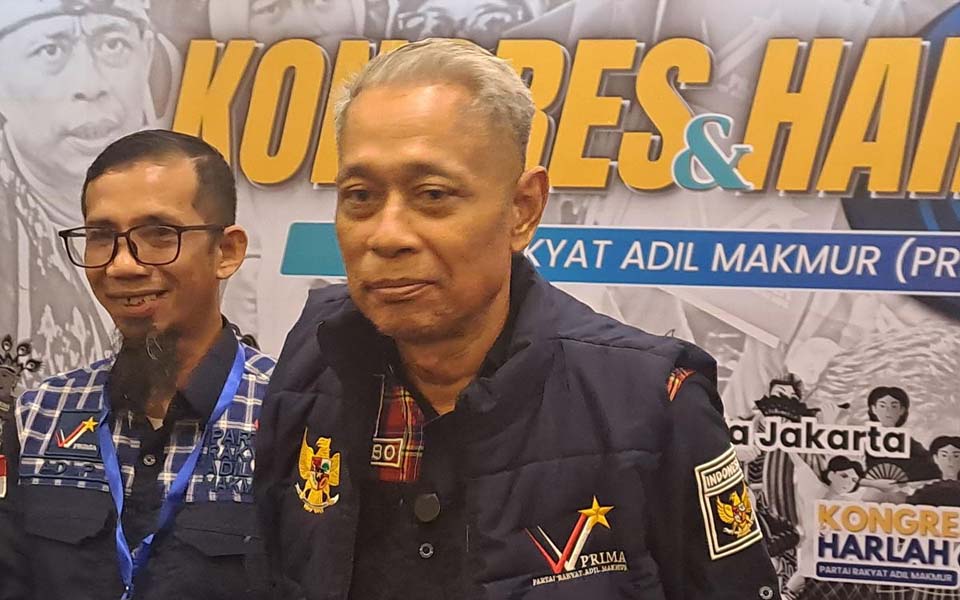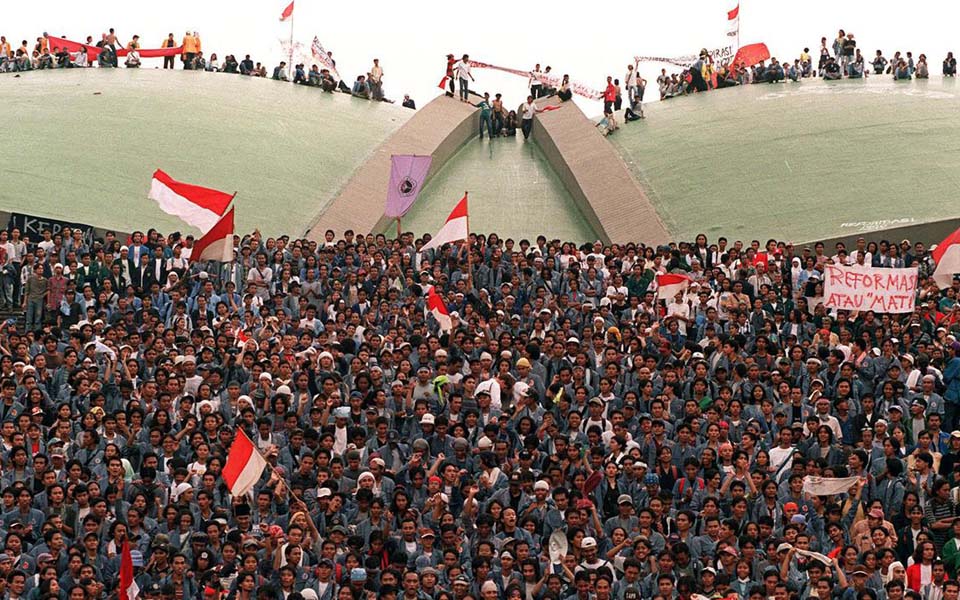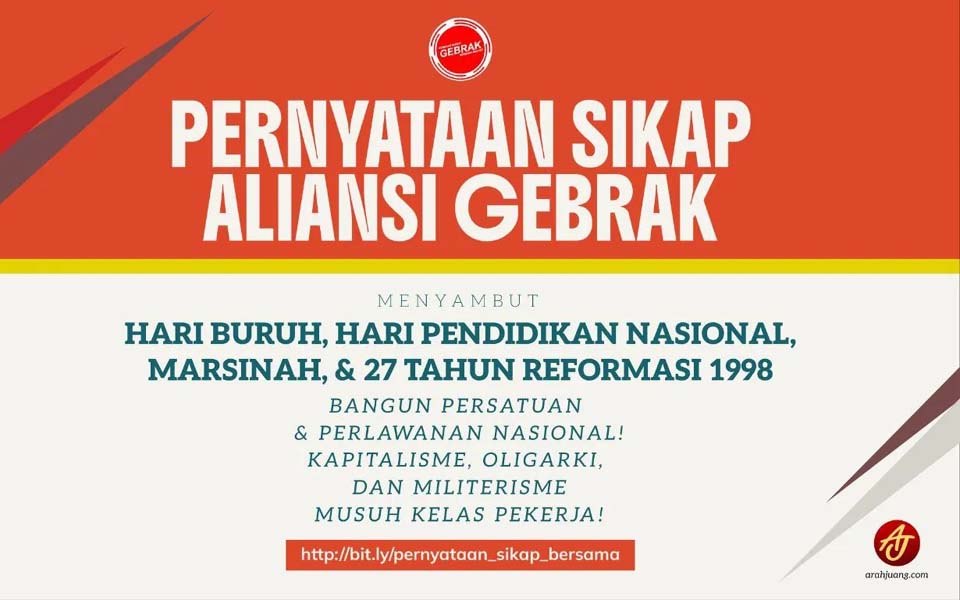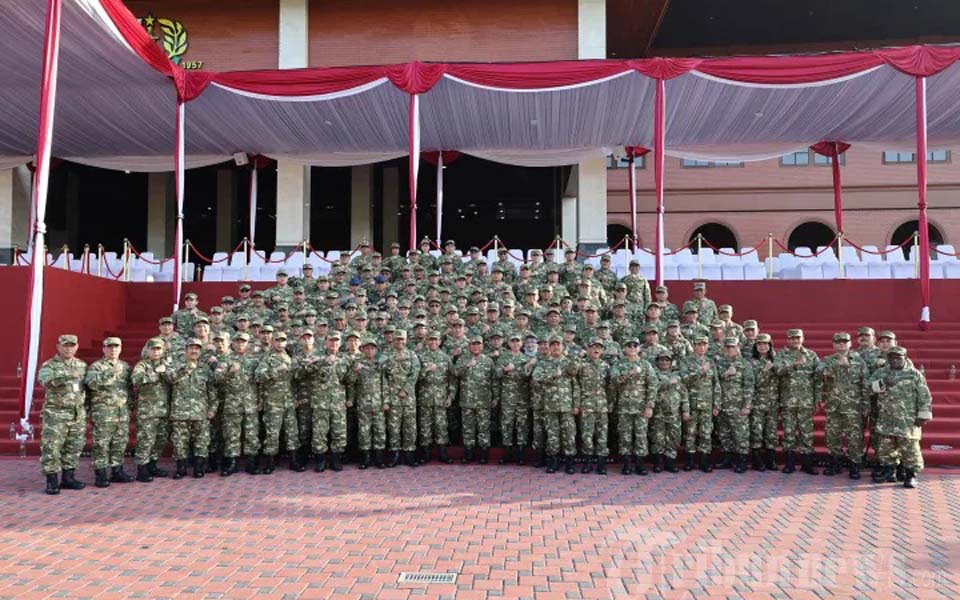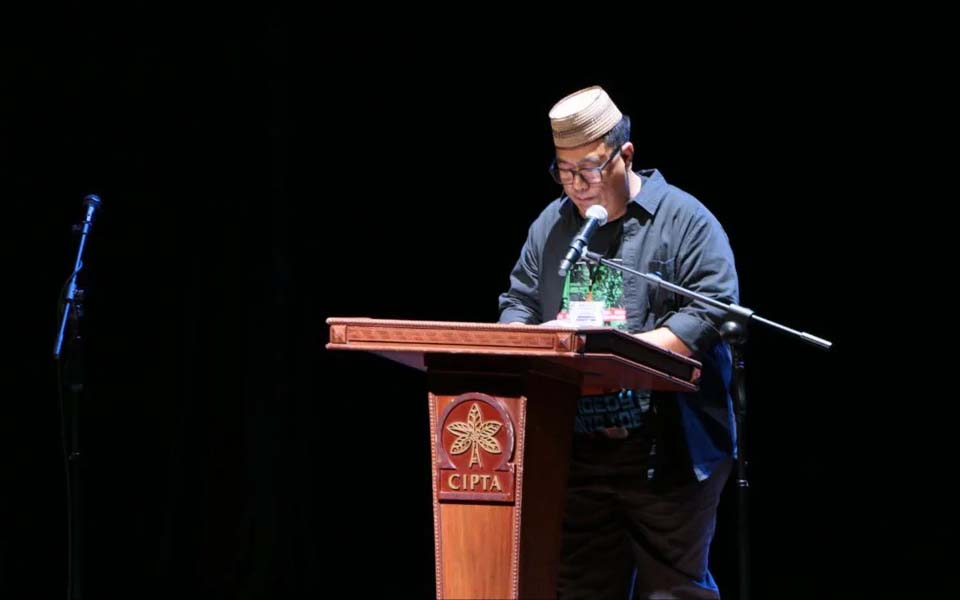On February 14, 2024, Indonesia will hold legislative and presidential elections. Workers and the people are expected to elect legislative members from 18 political parties at the national level, as well as choose from three pairs of presidential and vice presidential candidates: Anies Baswedan-Muhaimin Iskandar, Ganjar Pranowo-Mahfud MD and Prabowo Subianto-Gibran Rakabuming Raka.
In the last twenty years, the emergence of new political parties and figures such as President Joko "Jokowi" Widodo and his eldest son Gibran have only been based on personalities. The contest in the 2024 election this time round, as before, will be a contest to garner votes based on electable figures. That is why in elections, "electability" becomes the key word, and "political dynasties" becomes the way for the political elite to perpetuate power. They unite and separate on the basis of pragmatism to gain power for their own interests. In other words, the contest between the political elite is not about democracy and prosperity for workers and the ordinary Indonesian people.
If we look back at the quarter century since reformasi – the political reform process that began in 1998 – the political elite in Indonesia have taken turns holding power. In holding power alternately, they have showed that there are no significant differences between them, including when they become the "opposition". There are no principle divisions, there are no principle debates, there is no alternative opposition, and there is no difference in their perspectives on Indonesia's future. Political maneuvers do of course continue to occur but this is not related to principle issues, but rather in the form of their manipulations simply to get votes. On almost all policies, in the end, they all agree.
In general terms, the current Indonesian political elite are divided into two groups, namely the remnants of the New Order military regime of former president Suharto, and the political elite who are seen as outside of the New Order military regime. However the bitter reality that we must face is that the remnants of the New Order have been able to re-implant their power after being overthrown by the people's struggle during the 1988 reformasi, precisely because the political elite outside of the New Order saved them. Now, there is almost no political party that does not have former government officials, military generals and or business tycoons from the New Order military regime. We should remember the Ciganjur Declaration which highjacked the 1998 reformasi agenda. When students, workers and the ordinary people flocked to the streets to destroy the remnants of the New Order military regime, who had gathered at the parliament building to hold a special session of the People's Consultative Assembly (MPR), the political elite "reform" figures Megawati Sukarnoputri, Abdurrahman "Gus Dur" Wahid, Amien Rais and Sultan Hamengkubowono X gathered in Ciganjur, South Jakarta, to agreed on a declaration that opened the way to make concessions to the remnants of the New Order military regime.
In the 2014 and 2019 elections, a view developed that the correct thing to do was to choose the best among the worst, voting to prevent the worst from gaining power or voting for the lesser evil. Now we can see the results of this "lesser-evil-ism": First, that there is a good possibility that the Prabowo-Gibran ticket will garner a majority vote in the 2024 presidential elections. The Prabowo-Gibran ticket is the strongest representation of the remnants of the New Order military regime and dynasty politics. Second, so far there has yet to emerge an alternative political force from workers and the ordinary people.
It is clear that in Indonesian society, the position of the political elite who hold power is always confronted by workers and the ordinary people. This state of confrontation is very clear: "They and us", "between here and there" and the "the 99% and the 1%".
Therefore, it is ineffective for the movements groups that hold to the idea of an alternative to simply become a counterweight to power. It is also ineffective for movement groups to just be limited to the goal of maintaining a situation where the democratic climate can be safeguarded so that alternative thoughts continue to be given freedom to be articulated. It is also not effective to hold the view that the aim of civil society is to educate and control the political elite. It is also ineffective if we draw the conclusion that when we resist them, what we should do is provide recommendations to the political elite to change their policies, attitudes or positions.
On the other hand, this time round the 2024 elections has seen the emergence of the Labour Party (Partai Buruh) which was formed by sections of the trade union movement and other people's organisations. Some of the forces from the democratic, progressive or socialist movement have joined the Labour Party. However, although they use the slogan "We Are The Working Class", the Labour Party is still controlled by the trade union bureaucratic elite.
They have a long history of collaboration with the political elite, and the trade union bureaucratic elite are still looking to support one of the presidential tickets. They still rely on the political elite whose interests totally conflict with those of workers and the ordinary people.
It must be recognised however that there are left-wing forces within the Labour Party consisting of organisations and individuals with a progressive ideology and a long experience of struggle before joining the Labor Party. The left-wing of the Labor Party has also shown consistency it their political positions, including rejecting all three presidential tickets and legislative candidates running in the 2024 elections from the coalition of political parties that supported the anti-worker Omnibus Law on Job Creation.
Our duty and goal is for workers and the ordinary people to be able seize power from the hands of political elite. With that, power can be used for the benefit of workers and the people. When power is in the hands of workers and the people, democratic and welfare programs can be carried out. These include:
- Fighting for and encouraging the expansion of democratic and human rights. Fighting for trade union rights and civil freedoms. Abolishing all legal products that are anti-democratic and anti-people such as the Job Creation Law, the revised Criminal Code (KUHP) and the Information and Electronic Transaction (ITE) Law. Including also fighting against those who obstruct democracy.
- Rehabilitation for victims of crimes against humanity through a Human Rights Court to try all of the generals, government officials and conglomerates that perpetrated these crimes. This rehabilitation should include Marxist, Leninist and communist ideas that were scapegoated by the New Order military regime following the 1965 mass killings.
- Secularisation that separates religion from the state and the government. As well as guaranteeing freedom of religion (or the freedom not to have a religion), belief and worship of the entire population.
- Control by the working class and working people over the economy. This means that the planning and implementation of economic policy must be monitored, approved and carried out by an administration that is realised based on the power of labor organisations and the ordinary people.
- Supporting farmers' demands to fight land grabs and genuine agrarian reform, namely land for those who work the land.
- Decent Working conditions and livelihoods. This includes the struggle for decent wages; education that is free, scientific, democratic and with a populist vision; and quality healthcare that is free and easily accessible.
- National industrialisation to develop productive labour for the welfare and progress of the ordinary people.
- The nationalisation of strategic assets under control of the people.
- The redistribution of national wealth.
- The liberation of women from sexism and fighting against the sexual oppression of human beings.
- Full equality and rights for traditional communities and youth.
- Fighting racism, sexism and right-wing fundamentalism.
- Environmental protection as well as a comprehensive disaster response systems and early disaster detection.
- Supporting international peace and solidarity by supporting the right of self-determination and rejecting imperialist intervention.
- The elimination of foreign debt for all Third World countries.
To order to be able to do this, workers and the ordinary people need an alternative political force, namely their own political party. Actually, almost all democratic, progressive or socialist movements have called for building of such an alternative political force. An example of this was the People's Movement Conference in 2018. The conference was attended by no less than 500 participants representing around 42 organisations led by the Indonesian Trade Union Congress Alliance (KASBI), the Confederation of United Indonesian Workers (KPBI), the National Labour Movement Centre (SGBN), the Populist Democratic Trade Union (SEDAR) and the National Trade Union Confederation (KSN). In the conference resolution it stated that:
(1) Capitalism-imperialism are the main source of people's problems that create poverty, misery, environmental damage, human rights violations, corruption, the destruction of natural resources and political, social, cultural and economic inequality;
(2) The capitalist-imperialist regime threatens people's democracy, with the enactment of policies and laws that narrow democratic space (the Jobs Law, the ITE Law, the Law on Legislative Bodies, etc) and on the other hand provide space for the strengthening of the forces of capital, militarism, fundamentalism, patriarchalism and corruption;
(3) The unity of the people's movement and an alternative political force is an urgent need for the people's movement to fight the ruling capitalist-imperialist regime.
We need a reunite the people's movement to build an alternative political force. A unity based on this political manifesto and to be further deepened in a national consolidation of democratic, progressive and socialist forces. We cannot stop with declarations or statements calling for building an alternative political force. The most advanced elements of each organisation and movement group must be consolidated and delegated to build an alternative political force (a political party).
In the February 14 legislative and presidential elections we call on all workers and the ordinary people to:
- Abstain from the election of the next president and vice president.
- Call on trade unions, organisations, students, youth, people who are democratic, progressive and socialist to support this political manifesto in the 2024 elections.
- Call on the left-wing of the Labour Party to support this political manifesto as well as carry out all campaign activities and the electoral process based on this political manifesto.
- Call on workers and working people to support the campaigns and electoral process by the left-wing of the Labour Party which agrees with this political manifesto.
This manifesto was issued by the Socialist Union (Perserikatan Sosialis, PS) supported by Resistance, the Socialist Study Circle (Lingkar Studi Sosialis, LSS), the Socialist Youth League (Liga Pemuda Sosialis, LPS) and Cross Communal to consolidate the democratic, progressive and socialist movements in Indonesia.
[Translated by James Balowski. The original title of the article was "Manifesto Politik Pemilihan Umum 2024".]
Source: https://www.arahjuang.com/2024/01/18/manifesto-politik-pemilihan-umum-2024/





